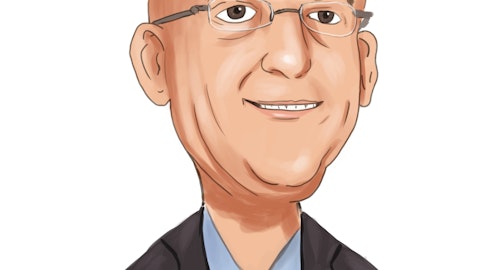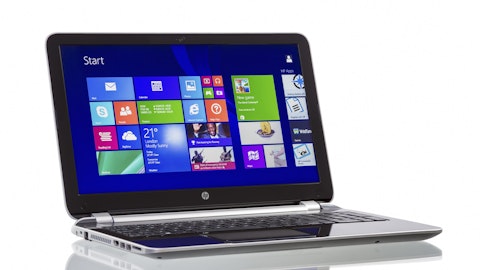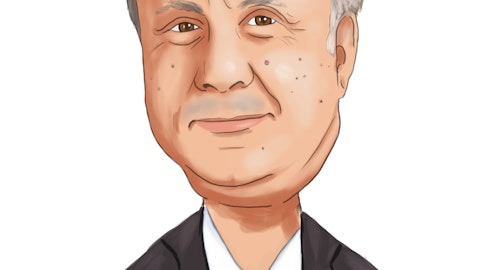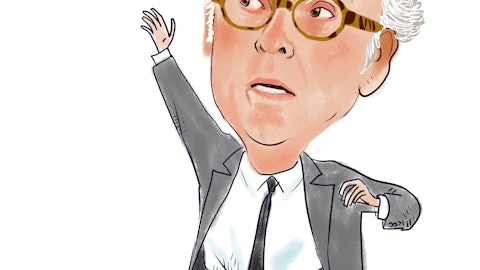Mark Argento: Good morning, guys. Incredible quarter, nice work. Just wanted to drill down a little bit more on the AI opportunity in particular. What do you see ultimately is the — probably the most logical business model using that technology? Is it to drive user growth of the browser? Is it a whole another standalone product you could potentially charge subscription, too? Is it (ph) based model? Maybe you could at least give us some of your initial thoughts.
Song Lin: Yes. I think — this is Song Lin. Maybe I’ll just comment a bit to start with, and Frode can also chime in, especially for revenue. So, I think for now, to be honest, I think the most distinctive impact, which we’re hoping, is for user engagement, right, more like for driving the user uptake. So, I think, a good example being that, of course, where we actually do see, even if we were just announced it and it maybe early stage, we see that user interest on the browser has actually increased quite a bit. Because, originally people just looking for regular system default browser, as always, our biggest challenge, right, that they just use it. But now technology, we actually see, obviously, the same as the early stage of mobile, right, as we called it, that there’s a lot more interest for people to actually looking for good browser which can deliver a very differentiated experience.
And we think that is actually probably the biggest short-term potential. And we see that is definitely having impact on the user base. I mean that’s also why we see a quite positive growth audience. But then, of course, like — and then user growth will, of course, correspond with more user engagement and hopefully more monetization potentials. However, of course, going deeper, it will probably have even more profound impact on the whole ecosystem, and that is almost beyond Opera, right? But then, for that, my guess would be that, probably it will be perhaps the nearly more towards maybe like again higher paid model subscription or something along the lines for especially some more partners, but then in line that will be able to drill down into Opera.
So, I think we feel that if there were going to be a lot of changes in the industry and for player like Opera probably means more opportunity than anything else. So quite excited.
Mark Argento: Great. And then, one for Frode. Obviously, free cash flow generation has been strong. You’ve been returning capital to shareholders. When you think about the guidance for 2023, the $71 million to $81 million in adjusted EBITDA, should we — is there still kind of almost 100% flow through to free cash flow, or how should we think about free cash generation in 2023?
Frode Jacobsen: Well, for 2022, I guess we converted about 87%, I looked at just now, of our adjusted EBITDA to operating cash flow. So, the delta is the taxes paid of about $3.1 million in the year and growth of working capital items about $6.6 million. I wouldn’t — I’m not guiding for 2023, but at least I can call out that the growth in working capital represented about 28% of the revenue growth we saw from Q4 ’21 to Q4 ’22. I think that’s a relatively fair indication. And in terms of taxes, our effective tax rate, if you take our P&L, take our operating profit and add back the equity compensation cost and look at taxes relative to that, since the equity cost is not tax-deductible, then our effective tax rate is about 18%.
Mark Argento: Okay, that’s helpful. And then, in terms of — did you say $30 million in OpEx — excuse me in CapEx for 2023?





